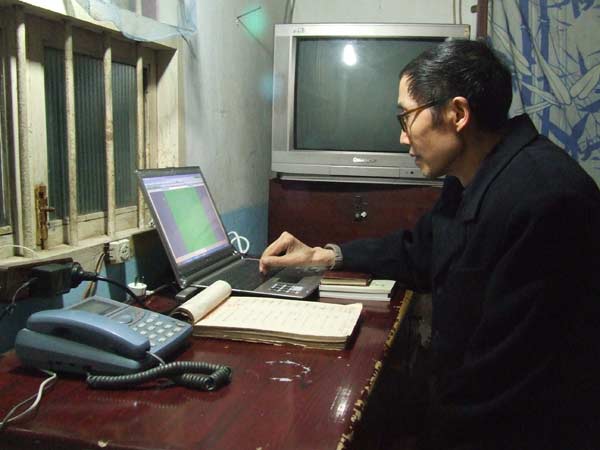 |
|
Photo Provided to China Daily |
"My work allowed me to visit different villages, so I could take the opportunity to know more about the Miao's Jia from older people and record them," says Wang. "But during the 'cultural revolution' (1966-76), many ethnic cultures were regarded as outdated things, so I had to collect them in private."
| Fishing in the desert |
It was the Third Plenary Session of the 11th CPC Central Committee in 1978 that revitalized culture across the country and the protection of folk culture gained more attention. From then on, Wang started to collect and study the Jia.
His initial investigation found that there were no more than 20 old people in Danzhai county who could sing the Jia. Wang visited them one by one, listened to the Jia they sang, and wrote everything down.
In order to get complete material, Wang sometimes stayed with the elders for several days. He helped with the housework during the day, consulted with the elders during breaks and sorted out what he had collected at night.
There was one elder who was very moved by Wang's work and explained to him every single verse of the Jia that he could recall for three days. Wang wrote down more than 3,000 lines of the ancient Jia.
"I could not afford a recorder until 1980, when I asked my friends overseas to buy an old one for me," Wang recalls.
Wang recorded the elders singing in the Miao language, then translated and edited the recordings at home. Wang considers translation the most difficult part of the process.
"Translation took most of my time because I had to try my best to accurately explain the cultural code of the Jia from the Miao language. I want the public to understand Miao culture. This is my original intention when writing the book."
All was going well until Wang fell ill with amyotrophic lateral sclerosis in 1982. He was only 37 years old and the disease would eventually paralyze him. The illness posed a great challenge for his work of collecting the Jia.
"The doctor told me it was an incurable disease," Wang says. "It was estimated that I could live, at most, another 25 years."
However, instead of scaring him, the disease drove Wang to seize every minute to complete the collection of the Jia.
